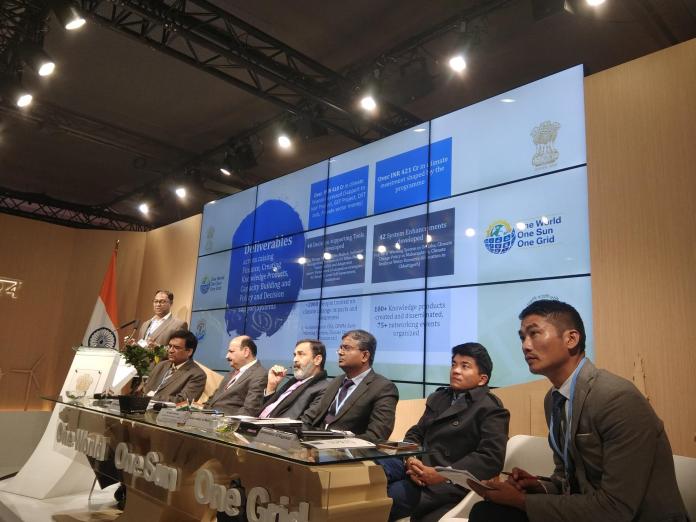The climate rulebook has been agreed – what now?
Our experts discuss the successes and highlights from COP24, and where parties need to boost action ahead of COP25
The 24th Conference of the Parties to the United Nations Framework Convention on Climate Change (COP24) was held in Katowice, Poland, between 3 and 14 December 2018. During that time, more than 20,000 policymakers, climate change experts, and other delegates joined the negotiations to finalise the rulebook for the implementation of the Paris Agreement.
Parties themselves have chosen 2018 as a deadline for the adoption of implementation guidelines, so this COP was expectedly very technical, but at the same time, the most important one since the Paris Climate Change Agreement was reached in 2015. The agenda for the event included raising ambition on reducing emissions, boosting transparency on reporting, and increasing climate finance.
Exploring the successes
Our climate change experts followed COP24 negotiations very closely and have welcomed the adoption of the rulebook, which introduces a new climate regime. Katherine Cooke, a senior consultant in our Climate Change and Disaster Risk team, explains why this is of crucial importance:
Discussing areas of improvement
Several issues remained contentious and parties clashed over how to recognise the IPCC special report on Global warming of 1.5°C and whether to clearly signal a need for greater ambition to stay below this temperature limit. “While the adoption of the rulebook is heartening, it is hugely frustrating to see the commitments going backwards on delivering real finance and real action,” described the negotiations Pankaj Kumar, Action on Climate Today (ACT) programme’s team leader for Bihar.
Another issue that arose at COP24 and caused disruption in finalising the rulebook was around differentiation between developed and developing countries. The contentious question was whether to agree a single set of rules for all the countries, with the flexibility for those that need it, or to maintain a current divide between the rules for rich and poor. The finalised deal leans towards a single set of rules for all, with wide margins for those countries that lack capacity to meet them.
In addition, parties struggled to agree the provision of climate finance to help developing nations adapt to the impacts of global warming, mitigate their emissions, and participate fully in the Paris Agreement. The process to define the levels of financial resources made available to the developing countries will only start in 2020. The Chair of the Least Developed Countries (LDC) Group Gebru Jember Endalew said that “compromise on ambition in terms of action and support means compromise on the lives and livelihoods of the most vulnerable people”. The LDC Group represents 47 of the poorest countries in the world and one billion people living there, that are very vulnerable to climate related impacts, but only produce 1% of emissions.
While parties managed to agree on large parts of the Paris rulebook, they couldn’t find common ground for the rules around voluntary market mechanisms, which was pushed into the next year. Even though failing to agree on the complex and technical Article 6 is disappointing, the rulebook does make it clear that any carbon market must be consisted with transparency and accountability.
Looking at the highlights
During the two weeks at COP24, the OPM-led ACT programme hosted and participated in various side events. The four programme team leads, including from India Pankaj Kumar for Bihar, Naman Gupta for Maharashtra, and Rizwan Zaman for Assam, as well as Sunil Acharya for Nepal, joined policymakers from their regions and countries to showcase how climate change measures can be mainstreamed into policy reforms at all levels.

For Pankaj Kumar, one of the personal successes included “hosting a side event in India Pavilion in collaboration with the Government of Bihar on Innovations in adaptation to climate change. We presented on climate smart governance in Bihar, highlighting all measures taken by the Government of Bihar for climate change mainstreaming at policy levels, with technical support from DFID ACT programme in Bihar.”
Showcasing OPM’s practical experience on innovative policy measures for mainstreaming climate adaptation into budgets and planning was one of personal highlights for Katherine Cooke. She explains why this is important:
The way forward
Speaking in the lead up to COP24, ACT regional programme manager Cristina Rumbaitis del Rio identified climate adaptation as one of main areas where progress is needed the most. At the time, she described what successful COP24 would look like for her:
While confirming the rulebook is an important achievement, it is crucial to ensure all parties have the capacity to turn their pledges into concrete action. Going forward, providing institutional, technical, and implementing support to the low- and middle-income countries should be a priority – especially in designing robust actions to implement to limit their emissions, known as the nationally determined contributions (NDCs), which work for them, particularly on adaptation mechanisms, financing plans, and accessing direct finance.
While finding consensus on how market mechanisms can be used to trade emissions credits between countries is to be finalised at COP25 in Chile next year, another essential milestone for parties is coming in 2020, when the countries are expected to come forward with strengthened national action plans.
[button-link text="Discover our updates from COP24 " link="https://www.opml.co.uk/blog/latest-updates-from-cop24"]
[button-link text="Video: What we expect from COP24? " link="https://www.opml.co.uk/blog/what-are-we-looking-to-learn-at-cop24"]
